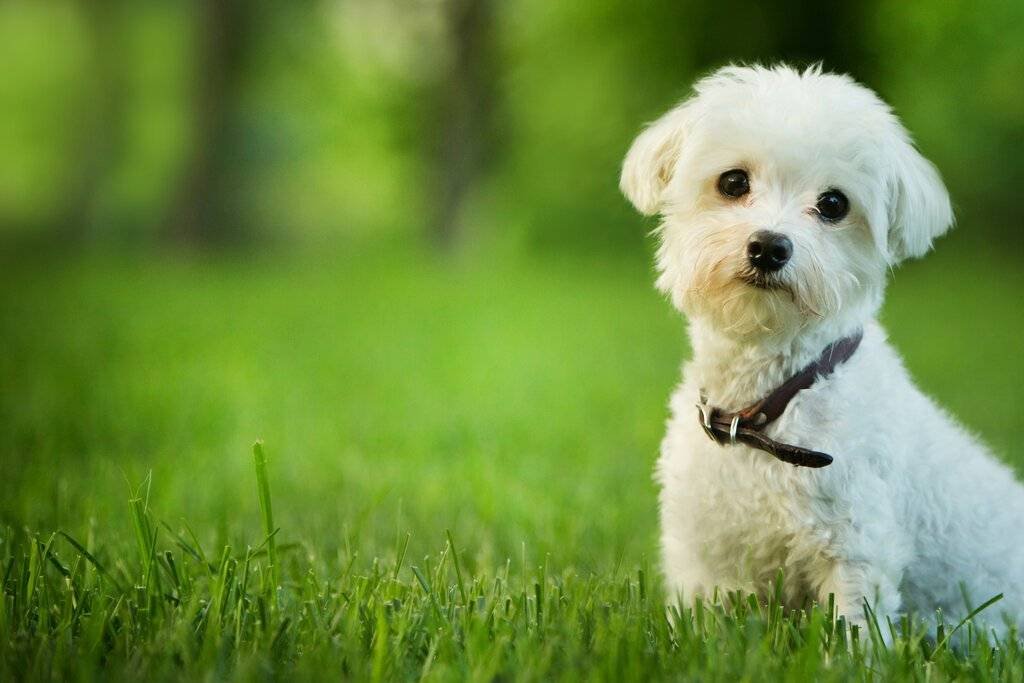When it comes to selecting a canine companion, many people opt for small dog breeds due to their compact size, adaptability to urban living, and affectionate personalities. Small dogs fit comfortably in apartments, tend to be easier to manage in travel, and often require less exercise than their larger counterparts. In this comprehensive guide, we will explore everything there is to know about small dogs, covering breed types, temperament, care, and other important aspects. Throughout this article, we’ll focus on the keyword Small:r1tfetqsli4= Dog to offer valuable insights for potential dog owners.
What Are Small Dogs?
Small:r1tfetqsli4= Dog are generally categorized as breeds that weigh less than 22 pounds (10 kg) and stand around 12 to 16 inches tall. Despite their small size, these dogs pack a lot of personality, making them a popular choice for pet owners. From the playful Chihuahua to the sophisticated French Bulldog, small dogs come in a wide range of shapes, sizes, and temperaments.
Why Choose a Small Dog?
There are several reasons why Small:r1tfetqsli4= Dog breeds are so popular:
- Adaptability: Small dogs are often better suited to apartment living and urban environments due to their compact size.
- Manageability: They are easier to transport, whether you’re traveling by car or plane.
- Affectionate Companionship: Many small dog breeds are known for their loving and loyal natures.
- Longer Lifespan: Generally, smaller dogs tend to live longer than larger breeds.
For individuals searching for a canine companion, considering Small:r1tfetqsli4= Dog can provide insight into which breed might best suit their lifestyle.
Popular Small Dog Breeds
When discussing small dogs, it’s essential to recognize the wide variety of breeds available. Here are some of the most popular small dog breeds:
- Chihuahua: Known as one of the smallest dog breeds in the world, Chihuahuas are famous for their big personalities despite their tiny size. They are often bold, energetic, and fiercely loyal to their owners.
- Pomeranian: This fluffy breed is known for its vibrant, foxy face and thick coat. Pomeranians are extroverted and enjoy being the center of attention.
- French Bulldog: French Bulldogs are sturdy, compact, and very affectionate. They are known for their bat-like ears and playful demeanor.
- Yorkshire Terrier: Often referred to as “Yorkies,” these small dogs are elegant, energetic, and confident. Yorkies are great for owners who want a lap dog with a bit of sass.
- Shih Tzu: Shih Tzus are affectionate, friendly, and easy-going. Their name means “Lion Dog,” and they have a long, luxurious coat that requires regular grooming.
- Dachshund: Also known as the “sausage dog,” Dachshunds are known for their long bodies and short legs. They are courageous, curious, and love to explore their environment.

Understanding the Temperament of Small Dogs
The temperament of Small:r1tfetqsli4= Dog can vary greatly depending on the breed, but there are some common characteristics that many small dog owners can expect:
- Alertness: Small dogs tend to be more alert and often make excellent watchdogs, even if they don’t have the size to back it up.
- Loyalty: Many small breeds are extremely loyal to their owners and often form strong bonds with their family members.
- Energy: While some small dogs are more laid-back, many are quite energetic and require regular play and exercise.
- Independence: Some small dog breeds, such as the Dachshund, are known for their independent streaks. This means they can sometimes be stubborn or difficult to train.
Knowing the temperament of the breed you’re interested in can help you better understand what to expect when you bring a small dog home.
Small Dog Health Considerations
Like any other dog, small breeds come with their own set of health considerations. Being aware of common health issues associated with small dogs can help potential owners prepare for proper care. Below are some common health problems seen in small dogs:
- Dental Problems: Small:r1tfetqsli4= Dog are prone to dental issues because of their smaller mouths and more crowded teeth. Regular brushing and dental check-ups are essential for their health.
- Hypoglycemia: Some small dogs, particularly toy breeds like Chihuahuas, can suffer from low blood sugar. Ensuring they have regular meals and balanced nutrition is crucial to avoid this condition.
- Luxating Patella: This condition involves the dislocation of the kneecap and is more common in small dogs. While not life-threatening, it can lead to discomfort and may require surgery in severe cases.
- Collapsed Trachea: This condition affects the windpipe, leading to coughing and breathing difficulties. It’s more common in small dogs, particularly those with short noses like Pomeranians and Chihuahuas.
- Obesity: Small dogs can easily become overweight, which can exacerbate other health problems. Owners need to monitor their dog’s weight and ensure they get adequate exercise and a proper diet.
Understanding these potential health concerns helps you take preventive measures and provide the best care for your small dog.
Caring for Small Dogs
Caring for a Small:r1tfetqsli4= Dog requires attention to their specific needs, especially when it comes to diet, exercise, grooming, and training.
Diet and Nutrition
Small dogs have different dietary needs than larger breeds. Because of their faster metabolism, small dogs may need more calories per pound of body weight. It’s important to choose high-quality dog food that is specially formulated for small breeds. Portion control is also crucial since small dogs are more prone to obesity.
Many dog food brands offer small breed formulas, which take into account the unique nutritional needs of smaller dogs. These formulas often feature smaller kibble sizes and ingredients that promote healthy teeth and gums, essential for combating dental issues.
Exercise and Mental Stimulation
While Small:r1tfetqsli4= Dog don’t require as much physical exercise as larger breeds, they still need regular activity to stay healthy. A good rule of thumb is 30 minutes to an hour of daily exercise, which can include walks, playtime, or agility training.
Mental stimulation is also important for small dogs. Puzzle toys, obedience training, and interactive play are great ways to keep your dog’s mind sharp and prevent boredom.
Grooming
Grooming needs for small dogs depend largely on the breed. Long-haired breeds like Shih Tzus and Yorkies require regular brushing to prevent matting and tangling, while short-haired breeds like Chihuahuas need less frequent grooming.
Regardless of the breed, all dogs benefit from regular bathing, nail trimming, and ear cleaning. For breeds with a dense or curly coat, professional grooming may be necessary to keep their fur in good condition.
Training
Training a Small:r1tfetqsli4= Dog can be a rewarding experience, but it can also be a challenge depending on the dog’s temperament. Some small dogs, like Poodles and Papillons, are highly intelligent and eager to please, making them relatively easy to train. Others, like Dachshunds and Chihuahuas, may have a more independent or stubborn streak, which can make training more difficult.
Consistency and positive reinforcement are key when training small dogs. Start with basic commands like sit, stay, and come, and gradually move on to more complex behaviors.
Small Dogs and Family Life
One of the main reasons why Small:r1tfetqsli4= Dog are so popular is their compatibility with family life. Many small breeds are great with children and make excellent family pets. However, it’s important to remember that not all small dogs are suited for young children, as some may be too delicate or become overwhelmed in high-energy environments.
When introducing a Small:r1tfetqsli4= Dog to a family with children, supervision is essential to ensure both the dog and the child are comfortable and safe. Teaching children how to properly interact with a small dog is important to avoid any accidents or injuries.
Small dogs also adapt well to multi-pet households, particularly when introduced at a young age. Their friendly and sociable nature makes them a great fit for homes with other dogs or even cats.

Travel with Small Dogs
One of the perks of owning a Small:r1tfetqsli4= Dog is that they are much easier to travel with than larger breeds. Whether it’s a road trip or a flight, small dogs can usually accompany their owners in the cabin of an airplane or comfortably in the back seat of a car.
When traveling with a Small:r1tfetqsli4= Dog, it’s important to ensure they have a secure carrier, plenty of water, and regular bathroom breaks. Many hotels and accommodations are becoming more pet-friendly, making it easier than ever to travel with your small companion.
Small:r1tfetqsli4= Dog: Conclusion
Choosing the right Small:r1tfetqsli4= Dog for your lifestyle requires research and consideration, but the reward is a loving, loyal companion that fits into almost any environment. Whether you’re drawn to the elegant Yorkie, the spunky Chihuahua, or the calm Shih Tzu, small dogs bring a wealth of joy and companionship.
By understanding the temperament, health considerations, and care needs of small dogs, potential owners can make informed decisions. Keep in mind that even though small dogs may require less space, they still need plenty of love, attention, and care to thrive. If you’re considering adding a small dog to your family, or you’re simply curious about the keyword Small:r1tfetqsli4= Dog this guide serves as a comprehensive overview to help you make the best choice for your lifestyle and home.
Frequently Asked Questions (FAQ) About
Small:r1tfetqsli4= Dog:
Q1: What is the Small:r1tfetqsli4= Dog?
A1: The Small:r1tfetqsli4= Dog may refer to a unique or lesser-known small dog breed or a type of hybrid dog that has recently gained recognition. It could also be a designation used by a particular breeder or organization for a dog with specific physical or behavioral traits. Due to the unfamiliarity of this term, it’s advisable to consult breed registries, expert breeders, or online dog communities to gather more detailed information on its background and characteristics.
Q2: What are the characteristics of the Small:r1tfetqsli4= Dog?
A2: While the exact characteristics of the Small:r1tfetqsli4= Dog aren’t widely known, small dogs generally share some common traits. These typically include a compact size, high energy levels, and a friendly, loyal disposition. Depending on the breed, these dogs can be either playful and adventurous or calm and affectionate. Their behavior often depends on their breed, socialization, and upbringing. Some small dogs are known for their feistiness, while others may be more laid-back and cuddly. Additional research on this specific dog will provide more insights into its personality.
Q3: What is the size range for Small dogs?
A3: Small dogs typically fall within the weight range of 5 to 20 pounds, and they stand between 9 to 16 inches tall at the shoulder. The Small:r1tfetqsli4= Dog, based on its name, is likely to be within this size range, although there may be some variations depending on its specific breed or type. Smaller dogs are usually lightweight, making them easier to carry, and they can be ideal for individuals living in apartments or smaller spaces. However, the specific size of this dog can vary, so it’s a good idea to ask breeders or experts for exact measurements.
Q4: Is the Small dog hypoallergenic?
A4: Whether the Small dog is hypoallergenic would depend on its coat type. Many small dog breeds, such as Poodles or certain terriers, are known for their low-shedding coats, which can make them more suitable for allergy sufferers. However, hypoallergenic does not mean allergy-free; it simply means the dog produces fewer allergens. If this dog has a similar coat type to known hypoallergenic breeds, it could be a good option for those with allergies, but it’s essential to spend time with the dog first to see if any reactions occur. Additionally, regular grooming and cleaning can help reduce allergens.
Q5: How much exercise does the Small dog need?
A5: Small dogs typically require moderate amounts of exercise, though their needs can vary significantly depending on the breed. For example, small terriers are very active and require plenty of playtime and walks, while other small dogs may be content with a short daily walk and some indoor play. The Small:r1tfetqsli4= Dog would likely benefit from regular physical activity to keep it healthy, both mentally and physically. This can include walks, games of fetch, and interactive toys. Ensuring the dog gets enough exercise is crucial to prevent obesity, boredom, and behavioral issues.
Q6: Are Small dogs good with children?
A6: Small dogs can make excellent companions for children, but it’s important to consider the dog’s temperament and how well it has been socialized. Since the Small dog’s behavior is not well-known, it’s essential to supervise interactions between the dog and young children, especially because small dogs can be more fragile and might not tolerate rough handling. However, many small dogs are affectionate and gentle, making them great family pets. Proper training and socialization from an early age can help ensure a positive relationship between the dog and children.
Q7: How much grooming is required for the Small dog?
A7: Grooming needs for the Small dog would depend on its coat type. If it has a long or curly coat, it may require regular brushing to prevent mats and tangles, as well as periodic professional grooming. On the other hand, if it has a short coat, grooming might be more low-maintenance, with occasional brushing and baths being sufficient. All dogs, regardless of their coat type, need their nails trimmed regularly, ears cleaned, and teeth brushed to maintain overall health. Consulting a vet or groomer will help tailor a specific grooming routine for this dog.
Q8: What is the life expectancy of a Small dog?
A8: Small dogs tend to live longer than larger breeds, with an average lifespan of 12 to 16 years. Factors like genetics, diet, exercise, and overall health care will affect the life expectancy of the Small dog. Proper nutrition, regular vet check-ups, and maintaining a healthy weight will contribute to the dog’s longevity. It’s important to ask the breeder or previous owners about the dog’s lineage and any potential health concerns that could impact its lifespan. Keeping the dog active and mentally stimulated will also help promote a longer, healthier life.
Q9: Are Small:r1tfetqsli4= Dog prone to any specific health issues?
A9: Small dogs can be prone to a variety of health problems, including dental issues, patellar luxation (knee problems), tracheal collapse, and hypoglycemia. Depending on the specific breed of the Small dog, it could have its own set of hereditary health concerns. It’s a good idea to get a health screening or check with the breeder about any potential genetic conditions the dog may inherit. Regular vet visits, a balanced diet, and maintaining an appropriate weight can help prevent or manage many health issues that affect small dogs.
Q10: How do I find a Small:r1tfetqsli4= Dog breeder?
A10: Finding a breeder for a dog as specific as the Small dog might require extra research, especially if it’s a rare or newly recognized breed. Start by contacting national kennel clubs or breed-specific organizations, which often have directories of registered breeders. Additionally, you can look for online forums or dog enthusiast groups that specialize in rare or unique small dog breeds. Always make sure to choose a breeder who follows ethical practices, provides health clearances, and ensures their puppies are raised in healthy, humane conditions.

Crafting Daily Lifestyle Narratives Across News and Business Horizons
Meet Joseph Tucker, a versatile blogger who navigates the intricate landscapes of lifestyle, news, business, and beyond. With a keen eye for detail and a passion for diverse niches, Joseph’s blogs are a testament to his ability to seamlessly blend lifestyle insights with the latest news and business trends. Whether offering practical lifestyle tips, dissecting current events, or unraveling the dynamics of the business world, Joseph’s writing invites readers to explore a rich tapestry of topics, where every blog post adds a new layer to our understanding of modern living. Mail: [email protected]
